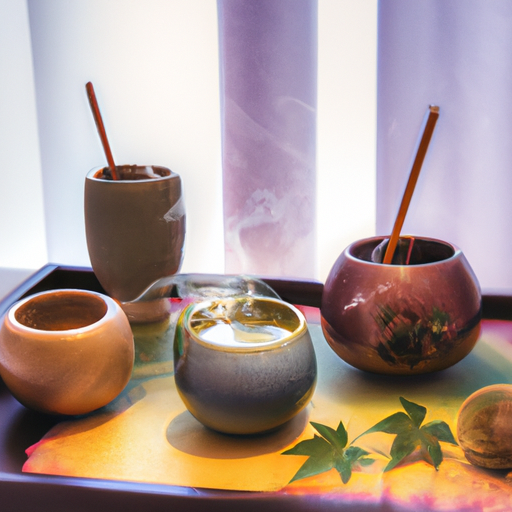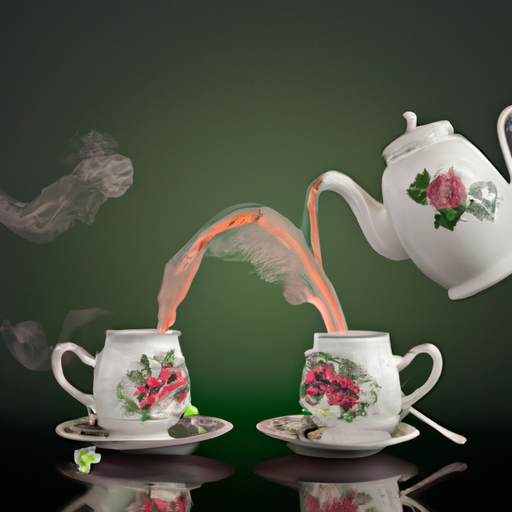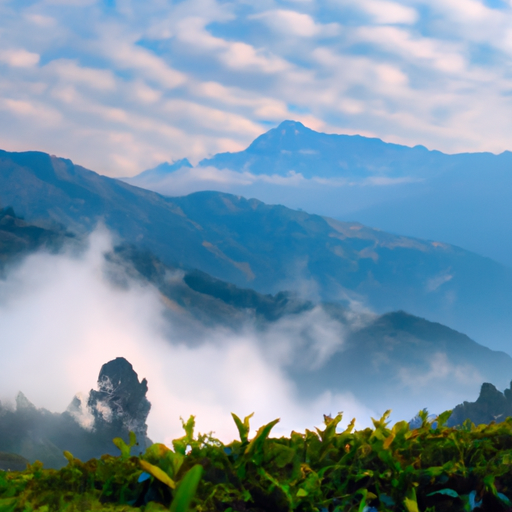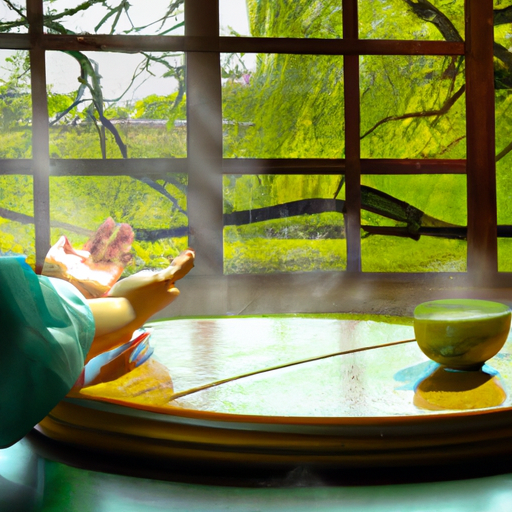Step into the world of exquisite teas, where each sip is a tantalizing journey for the senses. Like a symphony of flavors, these teas dance on your palate, offering a delightful escape from the mundane.
In this article, we explore the allure of Kukicha, Kokeicha, Purple Tea, Green Rooibos, and Yerba Mate, each boasting its own unique characteristics and health benefits.
Kukicha, a harmonious blend of tea leaves, stems, and stalks, is a gentle embrace of nature’s goodness. Its low caffeine content and diverse origins make it a versatile choice for any tea lover.
Meanwhile, Kokeicha, a rare gem from Japan, enchants with its meticulously crafted uniform leaves, allowing you to savor the essence of pure tea.
In the realm of vibrant hues, Purple Tea reigns supreme. With its captivating purplish infusion, it holds the potential to unlock a world of antioxidants and wellness.
For those seeking a lighter alternative, Green Rooibos offers a milder, caffeine-free indulgence, brimming with antioxidants to nourish the body.
Finally, Yerba Mate takes us on a journey to South America, where its energizing blend of caffeine and antioxidants invigorates the mind and body. Whether enjoyed traditionally or in innovative forms, this herbal elixir is a true companion for any tea enthusiast.
As we embark on this exploration of exquisite teas, let us remember to seek the guidance of health professionals, especially if pregnant, breastfeeding, or on medication.
So, grab your teacup, and let’s embark on this enchanting voyage of flavors, wellness, and discovery.
Key Takeaways
- Kukicha is a blend of tea leaves, stems, and stalks with low caffeine content.
- Kokeicha is a rare Japanese tea with uniform leaves best enjoyed in its pure form.
- Purple Tea has a captivating purplish infusion and potential health benefits, including cardiovascular benefits and reducing inflammation.
- Green Rooibos is a milder, caffeine-free tea with antioxidants, high in antioxidant content for overall well-being.
Types of Unique Teas
I’ve tried some unique teas like kukicha, kokeicha, purple tea, green rooibos, and yerba mate, and each one offers a one-of-a-kind flavor experience. These teas have their own distinct flavor profiles and brewing methods, making them truly special.
Kukicha, made from premium tea leaves and stems, has a delicate taste with low caffeine content. Kokeicha, a Japanese tea, is shaped into small uniformed tea leaves and is best enjoyed in its pure form.
Purple tea, with its purplish hue, is produced by only a few tea farms in Kenya and contains anthocyanin pigment, which has potential health benefits. Green rooibos, milder and sweeter than red rooibos, is caffeine-free and packed with antioxidants.
Yerba mate, popular in South American countries, offers a unique herbal flavor and can be enjoyed through various brewing methods. These teas also hold cultural significance, often being part of traditional ceremonies in their respective regions.
Health Benefits
One potential health benefit of these unique teas is their ability to improve digestion. For example, a study conducted on a group of participants who regularly consumed kukicha tea showed a significant reduction in bloating and improved gut health. This could be attributed to the high fiber content and probiotics present in kukicha tea.
Additionally, purple tea, with its rich anthocyanin pigment, has been associated with potential cardiovascular benefits and reduced inflammation.
Green rooibos, on the other hand, is known for its high antioxidant content, which may help protect against oxidative stress and promote overall well-being.
Yerba mate, with its caffeine content, can provide a gentle energy boost and has been linked to improved mental focus and alertness. However, it’s important to note that these teas may not be suitable for everyone. Potential risks include allergic reactions and interactions with certain medications. It’s recommended to consult a healthcare professional before incorporating these teas into your routine.
When brewing these unique teas, it’s best to follow recommended brewing methods to fully enjoy their flavors and potential health benefits.
Considerations and Precautions
Before incorporating these unique teas into my routine, it’s important to consider any potential allergies or interactions with medications, and consult a healthcare professional. Unique teas can offer a variety of flavors and health benefits, but it’s crucial to exercise caution and take necessary precautions.
Here are some factors to consider before trying these exquisite teas:
-
Allergies: Some individuals may be allergic to certain ingredients present in these teas. It’s essential to check the ingredients and consult an allergist if you have any concerns.
-
Medication Interactions: Certain teas may interact with medications, leading to adverse effects or reduced effectiveness. It’s advisable to consult with a healthcare professional to ensure that the teas won’t interfere with any medications you’re currently taking.
-
Pregnancy and Breastfeeding: Pregnant or breastfeeding women should exercise caution when trying new teas. It’s recommended to consult a healthcare provider to determine which teas are safe during these stages.
-
Personal Sensitivities: Each individual may react differently to teas. It’s important to be mindful of your own sensitivities and listen to your body’s response when trying new teas.
By considering these precautions and consulting with a healthcare professional, you can safely and enjoyably incorporate these unique teas into your routine.
Frequently Asked Questions
How is Kukicha different from other types of tea?
Kukicha stands out from other teas due to its unique health benefits and brewing techniques. For example, it’s rich in antioxidants and can aid in digestion. Its delicate flavor is best enjoyed when brewed at a lower temperature for a longer duration.
What is the traditional method of preparing Kokeicha?
The traditional method of preparing kokeicha involves shaping broken particle konacha into small uniformed tea leaves. This sets it apart from other teas like kukicha, which is made from premium quality tea leaves and contains stems and stalks.
Why is Purple tea not widely available?
Purple tea is not widely available due to its limited production by only a few tea farms, mainly in Kenya. However, it offers unique advantages such as a purplish hue and potential health benefits from its anthocyanin pigment.
How does the taste of Green rooibos compare to red rooibos?
The taste of green rooibos is like a gentle breeze, mild and sweet. In contrast, red rooibos is like a warm embrace, rich and robust. Each offers a unique sensory experience for tea lovers.
Can Yerba mate be consumed by pregnant or breastfeeding women?
Yerba mate should be avoided by pregnant or breastfeeding women due to its caffeine content. While yerba mate has potential health benefits, it’s important to consult a doctor for personalized advice during this special time.
Conclusion
In conclusion, these exquisite teas offer a delightful journey for the discerning tea connoisseur. Each sip transports you to a realm of pure indulgence, from the earthy notes of kukicha to the delicate uniformity of kokeicha.
The enchanting purple tea, with its health-boosting anthocyanin pigment, and the milder, sweeter green rooibos are perfect choices for those seeking a caffeine-free option.
And let’s not forget the invigorating yerba mate, with its rich antioxidants and multiple brewing possibilities. These teas truly create a symphony of flavors, inviting you to savor each sip and embrace the artistry of tea.










